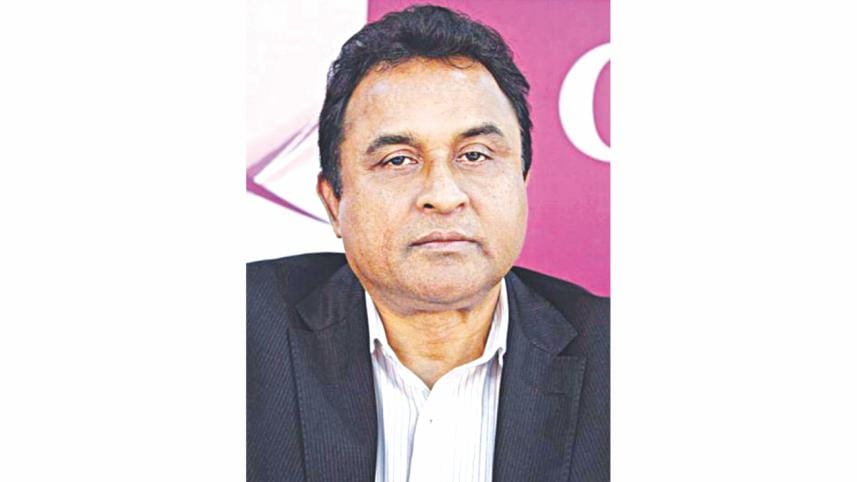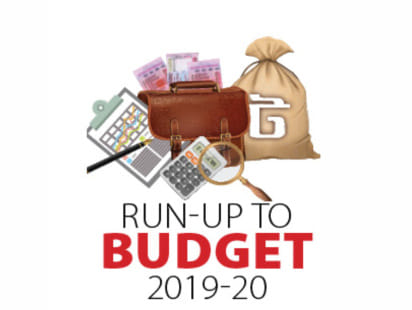Reforms on cards

The new budget will provide directives on reforms in education and financial sectors and incentives for the stock market, the finance ministry said yesterday.
“These are the interesting and acceptable things to the general people,” it said in a statement on the eve of the unveiling of the national budget for fiscal 2019-20.
The budget will be the first of Finance Minister AHM Mustafa Kamal, who took charge of the ministry in January this year. It is also the first one of the current government since retaining power in the national elections in December last year.
Even if the targets in the budget are far-reaching there will be wholehearted efforts to attain them, the finance ministry said.
“The budget will promise to turn the dreams of 16 crore people into reality. This is not a budget for just a single year; it has been prepared keeping in mind the far-reaching goals, including the 2041 goal.”
Bangladesh aspires to become a developed nation by 2041.
The ministry says revenue will be generated by way of widening the tax network instead of raising tax rates.
Only 1.5 million people pay tax, causing Bangladesh to have the lowest tax-to-GDP ratio in South Asia. The country has failed to collect tax and non-tax revenues in line with its economic growth momentum.
There is a noticeable slowdown in the collection of direct taxes too.

The budget will come up with new directives for the National Board of Revenue on how to simplify the revenue-generating process, the ministry said.
It will have directives on implementing the new VAT law, which will have more than one VAT rate.
Necessary amendments will be brought to customs and income tax laws to make them simplified and business-friendly, the statement said, adding that all import and export consignments will be scanned.
The new finance minister will present the budget at a time when the economy is under stress on many fronts.
“There are early signs of a debt build-up,” said Debapriya Bhattacharya, distinguished fellow of the Centre for Policy Dialogue, in a write-up.
It is visible that the fiscal framework is in a less-than-a-stout form to providing a strong hand to sustaining the high GDP growth.
“Let us see what credible measures will be proposed in the upcoming budget to strengthen the fiscal framework.”
Stress on the foreign exchange reserve is also becoming visible, he said, adding that the exchange rate of taka is under pressure and a downward adjustment is called for.
The quality and delivery of the annual development programme project portfolio remains a matter of concern. Effective introduction of the new law on value-added tax will be an added challenge.
Putting the banking sector in the right path, reviving the capital market and bringing down the alarmingly high default loans will warrant special attention from Kamal.
Focus has to be given on raising private investment and attracting much-needed foreign direct investment.
Something has to be done for the rice farmers who have been deprived of their rightful market price.
Like other annual national budgets, the new budget will be much more than a narrow instrument of fiscal policy, said Zaidi Sattar, chairman of the Policy Research Institute of Bangladesh.
“Its impact will be spread across the sphere of macroeconomics, trade, employment, growth and social equity, among others. That makes it a formidable bellwether for the future directions of the economy and society,” he said in a write-up published on the PRI website.
The budget must address a host of questions all at once.
“Can it be pro-poor, pro-employment and pro-growth all at the same time? If my reading is right, it will be business and investment-friendly like never before, considering the fact that so many business leaders are in the cabinet and in parliament and the economy is crying out for more investment -- in infrastructure, health, education, industry, agriculture and services.”
“But it is up to the government to strike a realistic balance between business and national interests, between producer and consumer interests, and so many other competing claims on scarce national resources.”
The budget should give the right signals so that the economy is firing on all cylinders to sustain more than 7-8 percent annual GDP growth for the next five years as Bangladesh prepares to graduate out of the least-developed country status in 2024, said Sattar, also a former senior economist of the World Bank.
Entrepreneurs and investors are watching and waiting for the right signals that will drive growth-oriented resource allocation in the economy.
“More of the business-as-usual cannot be the answer at this challenging moment in our economic destiny. The expectation is for some visionary if not radical changes in policy direction,” he added.



 For all latest news, follow The Daily Star's Google News channel.
For all latest news, follow The Daily Star's Google News channel.
Comments